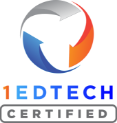Exploring the intersection of learning and AI with Shane Sutherland, CEO and Founder
In the ever-evolving landscape of education technology, PebblePad stands out as a pioneering platform that embraces innovation and new ideas. In an exclusive Q&A session, Shane Sutherland, CEO and Founder of PebblePad, shares insights into the motivations, challenges, and ethical considerations driving the incorporation of AI into its technology.
Hi Shane. So, how is PebblePad responding to the rapid emergence of AI?
As a growing and innovative business, we’ve been exploring how we can use AI to improve our business processes. For example, how we respond to customer support queries, how we manage complex tenders, and how we rebuild our help to incorporate AI. However, when it comes to the use of AI in PebblePad itself, it poses a few more challenges, though principally, ethical rather than technical challenges.
Could you elaborate on the considerations and challenges in integrating AI into PebblePad? (particularly regarding the personally owned and created content within the platform?)
The uniqueness of PebblePad lies in the personal ownership and creation of content – but content that is unique to that learner, at that time, and which might relate to failure, anxiety, regret – and one would hope success, achievement and delight! Integrating AI requires a thoughtful approach.
In order for AI to ‘react’ to something, for example a reflection, it has to have access to the reflection – and we know that some of these reflections are deeply personal. There are ways to mitigate some of the privacy concerns but we’re also very cautious about user’s perceptions of how their ideas, thoughts and reflections are being handled.
Are there other ways in which AI could be used to help students make sense of their learning?
Well, one example has been to think about using AI to sift through a user’s work to identify examples of practice or experience that matches a set of skills that the student is working towards. Of course the problem with that is that you’re still exposing the user’s content to the AI engine raising those privacy concerns.
But there’s an additional fear I have, which is that actually making sense of that body of work, looking for themes, extracting skills, making sense, the habit of noticing is what’s actually at the heart of learning. The effort, the purposefulness, the endeavour is what brings to the surface a student’s own sense of development and achievement. And it shouldn’t be outsourced to technology, however clever that technology is.
So will PebblePad not incorporate AI into its platform?
Oh, we definitely will. Indeed I’ve been travelling around and chatting to quite a few customers as well as attending conferences to help us get a feel for what’s the right thing to do. Broadly, the feedback we’re getting is to act really cautiously when it comes to handling students’ work, but find ways in which AI can help do some of the heavy lifting for administrators and those actively engaged in teaching and assessment.
We’ve just had a fantastic AI hackathon in the business. and we know that we can do things like create, templates and even workbooks from pre-existing content using AI. We’re looking into ways of using AI to duplicate elements or sections of workbooks or templates and create new ones from them.
And one of the simplest, and I think most useful quick(ish) wins is to be able to use AI to look at a set of skills, competencies or abilities published as PDFs, word documents or webpages and automatically create capabilities within PebblePad.
Thanks Shane. And finally, how does PebblePad envision the role of AI in aiding educators and assessors in assessing, reviewing, and providing feedback on learner’s work?
The diverse contexts in which work is assessed in PebblePad, from simple submissions to complex portfolios, require a careful and considered approach. While we are inclined and indeed encouraged to act slowly, our goal is to draw upon the knowledge of our community and experts to ensure that AI integration supports educators rather than supersedes their value. We’re mindful of maintaining the same level of care in handling feedback and assessments as we do with learners’ work, ensuring a balanced and thoughtful integration of AI into the assessment process.


















